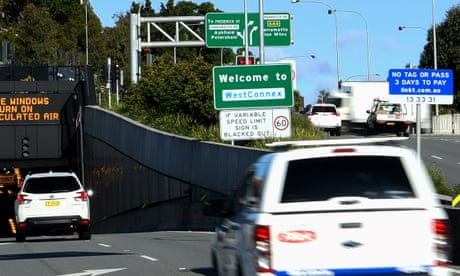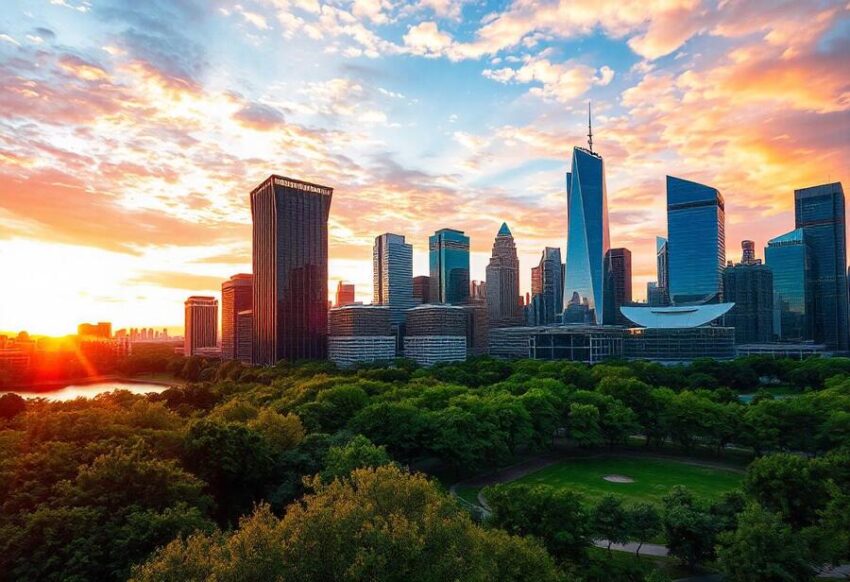- by foxnews
- 01 Feb 2025
‘Tolls discriminate’: western Sydney residents face $60 a day levy to drive into CBD
‘Tolls discriminate’: western Sydney residents face $60 a day levy to drive into CBD
- by theguardian
- 25 Jan 2023
- in news

Ammar's daily commute from Bankstown to Barangaroo in Sydney's CBD can cost him almost $60 a day, an amount he describes as "ridiculous".
On Tuesday, the NSW government announced the launch of its toll relief scheme, which offers 40% rebates of up to $750 to motorists who spend more than $375 a year on tolls. But for Ammar, who spends up to $290 a week on tolls, it barely makes a dent.
"I know there is a rebate, but they only pay a small portion and you are ultimately paying it upfront anyway," Ammar said.
A comparison of commutes of similar distance for people living east and south of the city shows toll costs are almost half those faced by people living in the west. Commuters from the north face tolls that are almost a third of the cost, according the NSW government's toll calculator.
For example, a commute from Hornsby to Barangaroo would cost $10.45 one way via the M2, while commutes to Barangaroo from Cronulla in the south or Randwick in the east would each cost $15.44, compared with $28.74 from Bankstown.
"It's $29 one-way, and if you think about it that's one meal. When you add on things like petrol and traffic, it's almost not worth it," Ammar said.
Ammar is a senior risk professional and, due to a knee reconstruction, is unable to take public transport.
"The car is the only option for me, and it feels like it's so much. There's also no real easy way to get to Barangaroo without the Cross-City tunnel, so it all adds up."
The state government opened the new M4-M8 tunnel ahead of schedule last Friday, with the new link cutting commute times from the west to the east of the city. But the tunnel adds yet another toll - capped at $11.11 after around 16km of driving - to Sydney's already extensive network.
The president of the Western Sydney Regional Organisation of Councils, Barry Calvert, said the hefty tolls were having a particular impact on people in western Sydney because it isn't the "wealthy part of Sydney".
"Not everyone can afford to live in Bondi or Manly. We'd all love to live over there and hop on a ferry every morning, but we can't. It's not always people's choice to live this far out, and the tolls do discriminate on that basis."
Calvert said public transport options in western Sydney were not a "viable alternative," and that many people feel forced on to the roads.
"I know that I would definitely use public transport and everyone else would if it was there, but it's not there. And so we're getting punished.
"Most people who are now living further out, in the north-west or the south-west down towards Camden, have to drive an hour or so to get on to a main rail line. And then you have to park your car, which usually costs more money."
Tolls on WestConnex increased by 6.1% from 1 January. If they were to rise much further, the soaring cost of living would make it difficult for Ammar to continue to justify using toll roads.
The NSW minister for metropolitan roads, Natalie Ward, said the government's new rebate scheme, will "more than double" the number of drivers eligible for toll relief.
The rebate is in addition to the M5 south-west cashback scheme, which allows NSW drivers to claim back the value of the tolls for a portion of the M5, excluding GST.
But NSW Labor said the rebate is not enough - and that the premier, Dominic Perrottet, has "given up" on toll reform after the delayed release of a review of Sydney's toll roads.
"The fact this review is being hidden is an admission that tolls are out of control in Sydney," the shadow minister for roads, John Graham, said.
The chair of urbanism at the University of Sydney, Prof Nicole Gurran, said economic disparities play a large role in the impact of Sydney's high tolls.
"There are social and economic disadvantages associated with being forced to commute a long way to work, because the cost of accessibility to work is priced into the housing market," she said.
"That [people] are also forced to [commute] by car because of a lack of sufficient transport options is an equity issue that both sides of government should take very seriously."
- by travelandtourworld
- descember 09, 2016
Thailand's Luxury Hotels Achieve Exceptional ADR Growth in 2024, Outpacing London and Singapore in Market Gains
Thailand’s luxury hotels saw remarkable ADR growth in 2024, surpassing London and Singapore in percentage increases, highlighting strong market expansion.
read more


